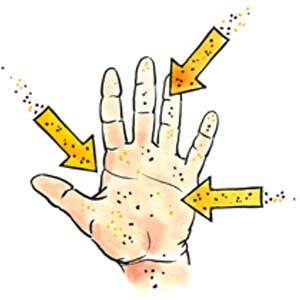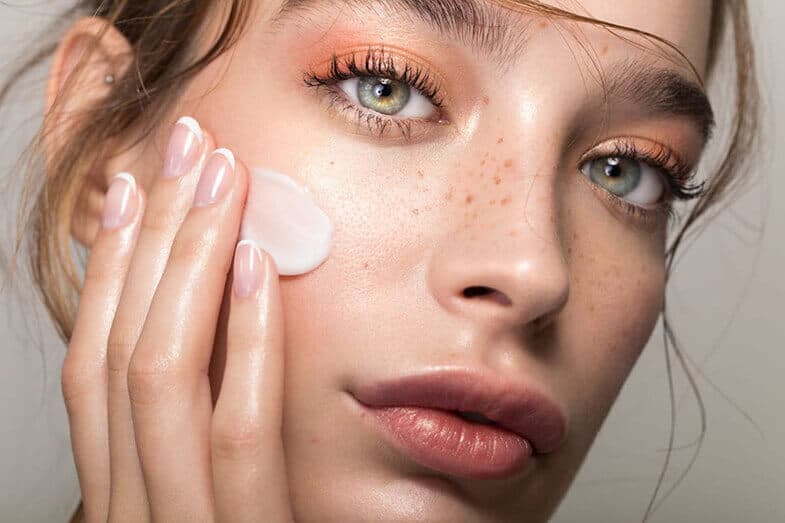
That said, I do suspect (have read verification) that the vast majority of personal care items are washed down our drains. Absorbed to where? Absorbed under what conditions? Which parts of the formulas – the water, the oil, some magic combination? Next time you hear such a statement, ask what the heck they mean. (I actually read a couple of heavy-duty research papers that demonstrate this statement through research).
DOES YOUR SKIN ABSORB WATER SKIN
The physical science of liquids (lotions and other products) applied to skin is extremely complex and NEVER predictable enough to say that any specific percent of any topical application is consistently “absorbed”. But water is a critically necessary ingredient that allows the cells in your dogs body to absorb. So, if essential oils are in the formula, do they evaporate? If it is cold, do they all congeal on top of your skin? What about formulas high in water? I’m going to guess they would behave differently in Arizona in July versus Maine in December. When we think of nutrition, we generally think of food. If skin or the air is warm, alcohol volatilizes really fast.

Alcohol, as we can all feel, evaporates rather quickly.
DOES YOUR SKIN ABSORB WATER FREE
It helps to reduce UV damage and does a great job at nourishing and protecting the skin from free radicals. It’s rich in lipophilic antioxidants and because of this, it is easily able to penetrate into the deepest layers of your skin. When you think about the fact that most liquids have some degree of volatility, then we need to account for temperature, humidity, and the individual volatility of the material. Apart from Vitamin C, Vitamin E is easily absorbed into the skin. I believe we should always question any blanket statement. There are some small molecules, and I would question those, but I doubt it is 60 or 80% of any formula. They just are too big to be absorbed into skin – they sort of snuggle down into the 2nd layer of the epidermis and stay there, or they sit on top of the skin. if we absorb all this stuff – where does it go? What happens in the shower, do we absorb all that water? Where is the logic in these statements?ģ – I know, because I have done my homework, that most oils are large molecules.

The skin on or around your eyes is thinner than the skin on your elbows. If someone said that 60% of a formula absorbs into skin and it is 60% water and the rest is derived from oil, do they mean that 60% of the water soaked in? Or do they mean that some of the water and some of the other ingredients “absorb”? What do they mean?Ģ – Think about it – if your skin absorbed 60 to 80% of what you put on it, wouldn’t you start to look a little puffy? I keep having visions of the Michelin Man when we get out of the shower. Does Absorption Depend on Where The Product Is Applied The short answer Yes. These types of comments have always bothered me – why? My weird brain:ġ – Personal care formulas are made of a range of all water-base, all oil and everything in-between. – “Your skin “eats” the products you put on it.” – “98.8% of “chemical such and such” is absorbed into your skin.” – “60% of everything you put on your skin is absorbed!” – “80% of everything you put on your skin is absorbed!” I continue to hear and read various claims about cosmetic products applied to the skin (I’ll address lipstick later): I can’t hear people make certain types of claims without wanting to know the source of their science and wanting to know their definitions. This will keep your hands from breaking and over dry.Some of you may not know that, although I do not practice, my education was as a physiologist and the science habits I learned have lingered. I am sure you can feel it yourself when the bleach is all out.Īt time after you have washed your hand thoroughly apply hand lotion so that it would get some moisturizer. While soaking I will rub both my palms together and make sure all the bleach is out from my skin. To me I use very warm water to soak my hands in it. I don't think wearing gloves takes too much of your time, if compared to the time you have to take in the hospital if you are ill. You have to find time to put on gloves before you start working. I am afraid you can get long term side effect from having direct contact of bleach to your skin. Whatever it is, I suggest you to use gloves because it is very important for you to take care of your own health. And it is more easier to absorb because your hand is always wet. Patients with diseases like psoriasis and atopic dermatitis have increased TEWL compared with disease-free individuals. Conclusions: Heating the skin increases the rate of percutaneous penetration of water, while freezing does not alter the absorption of water. We apply face cream every day after washing our face so that the cream will absorb into the skin. Results: Both percutaneous absorption of water and transepidermal water loss (TEWL) rates increase when the stratum corneum is damaged. The concept is somewhat similar with wearing face cream.


I don't know from the scientific aspect, but generally speaking I think bleach can absorb into the skin if used daily.


 0 kommentar(er)
0 kommentar(er)
